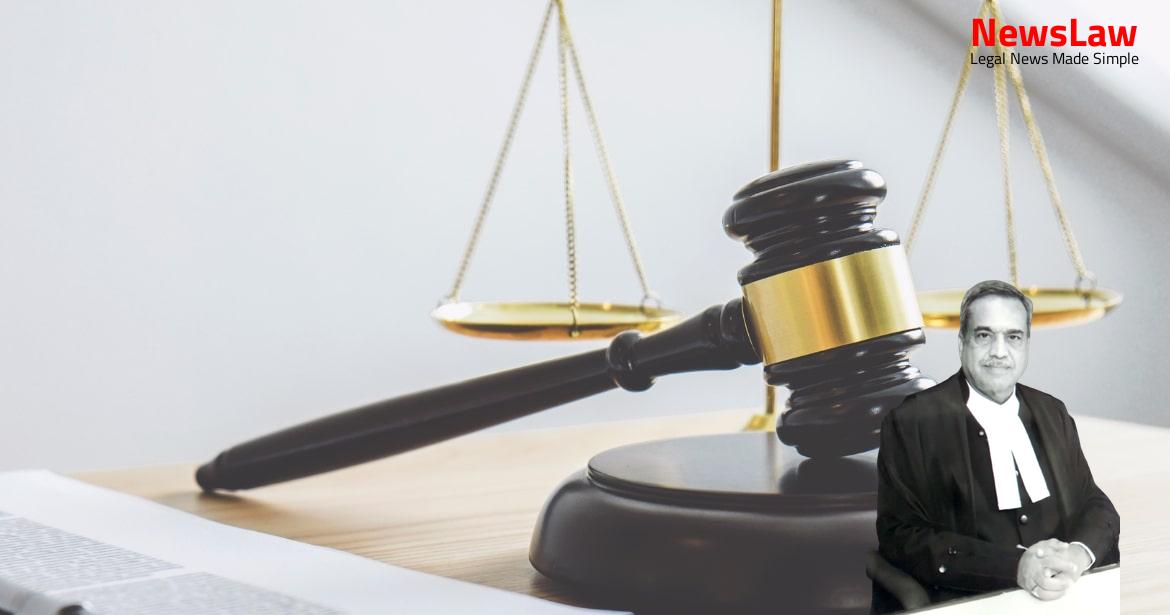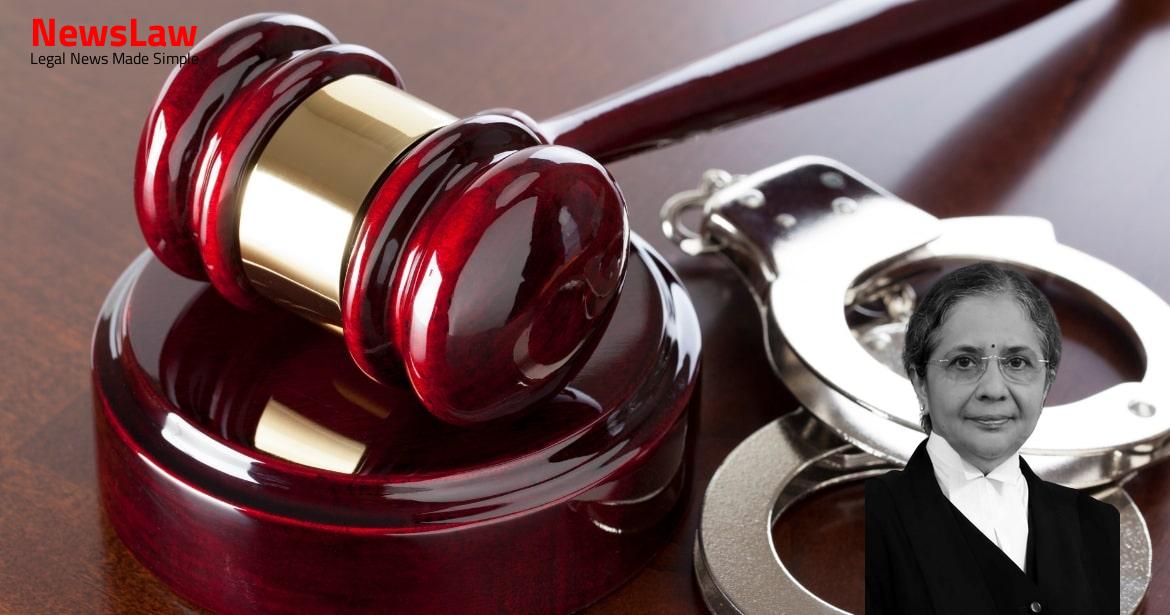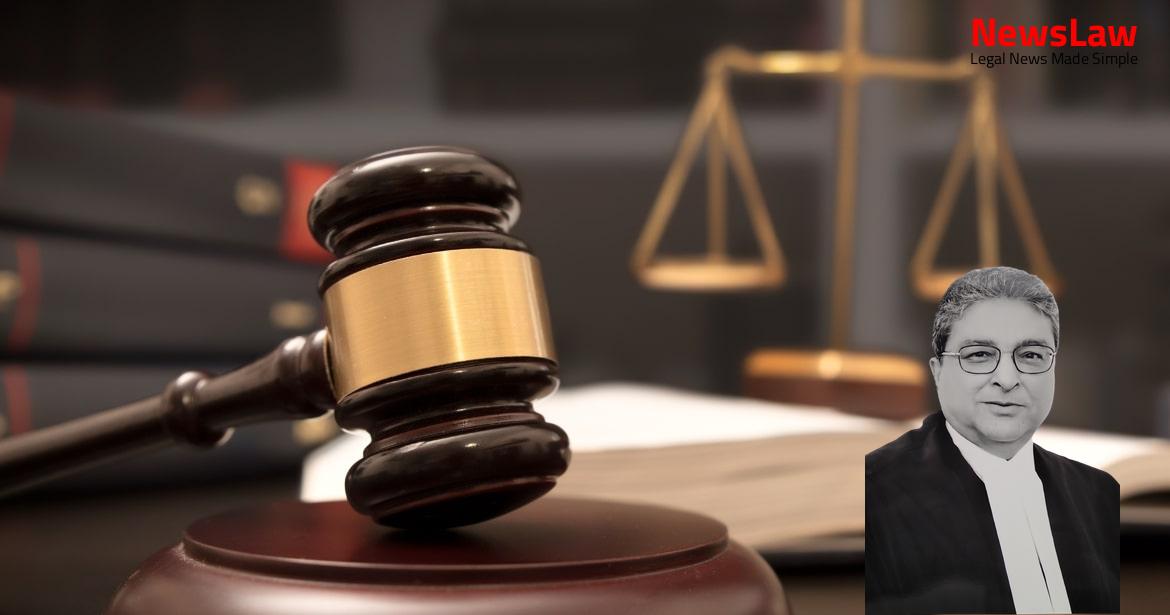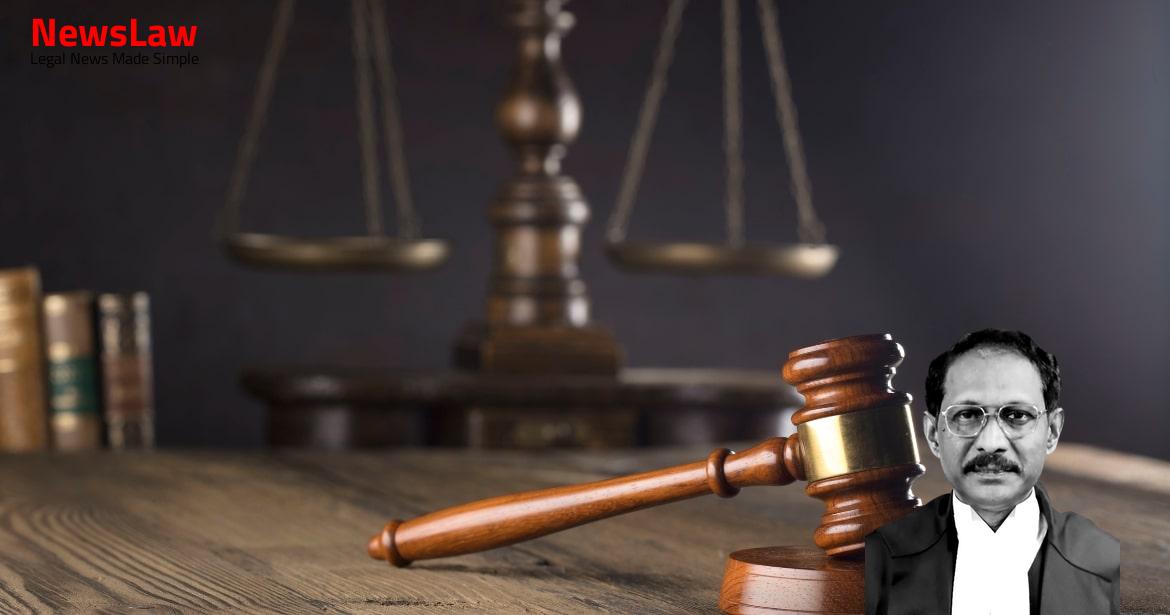Explore the detailed legal analysis provided by the court in a recent case concerning the cancellation of a recruitment process. The court’s examination of systemic flaws and irregularities highlights the critical need to uphold fairness and integrity in selection procedures. This case underscores the legal principles governing the cancellation of processes tainted by malpractices, emphasizing the importance of a just and transparent recruitment system.
Facts
- The High Court affirmed the decision of the Tribunal to set aside the cancellation of the recruitment process involving allegations of fraud.
- The relief granted by the Tribunal was limited to only the six applicants who had moved the Tribunal initially.
- Each of the six applicants was directed to reappear for the Tier-II examination within a specified period to complete the appointment process.
- The High Court upheld the Tribunal’s decision, citing consistency with legal precedents.
- Only the six candidates who had approached the Tribunal were granted relief in the form of reappearing for the Tier-II examination.
- The High Court directed the selected candidates to undergo the Tier-II examination afresh for completion of the appointment process.
- The Committee found serious irregularities, including cheating and impersonation, in both the Tier-I screening examination and Tier-II main examination.
- Following the Committee’s findings, the Deputy Chief Minister ordered the cancellation of the selection process.
- A committee was constituted to check the credentials of all candidates in the merit list for Gr.II/DASS (post code 90/09) to verify authenticity.
- Verification process involved biometric identification and checking thumb impressions of candidates.
- Allegations of irregularities were made by unsuccessful candidates, but the Committee found them to be valid.
- Concerns were raised about the lack of proper scrutiny of candidate qualifications, allowing unfit candidates to benefit.
- The examination should have been canceled earlier based on the Committee’s recommendations.
- An FIR was registered regarding the alleged irregularities in the examinations.
- Randomization was done for the Tier-II examination despite complaints of impersonation and connivance.
- The report highlighted delays in conducting exams, discrepancies in admit card issuance, and vague responses to irregularity allegations.
Also Read: Electoral Malpractices in Mayor Election
Arguments
- The decision of the Tribunal to set aside the cancellation of the selection process was deemed fair and proper.
- Mr. PS Patwalia, the learned Senior Counsel, urged for the justification of the Tribunal’s decision.
- It was argued that the six candidates who approached the Tribunal and were given relief by the High Court should not be required to appear for the Tier-II examinations if the cancellation of the results is set aside.
- DSSSB found no systematic flaw or irregularity in the recruitment process
- Impersonation issue was investigated and resolved by the second Committee
- Tainted candidates were segregated from untainted ones
- Candidates not moving the Tribunal should benefit from its decision
- Intervening candidates’ pleas rejected by the High Court on 15 December 2017
- The Deputy Chief Minister accepted DSSSB recommendations on 23 December 2015
- Tribunal’s decision to cancel recruitment process made filing writ petitions unnecessary
Also Read: Balancing Power and Transparency: Electoral Bonds Struck Down, Disclosure Mandated
Analysis
- The submissions by Mr. PS Patwalia suggest that the direction to constitute a Committee to check for impersonation implied acceptance of DSSSB’s explanation and focus on impersonation only.
- The remit of the second Committee was narrow, limited to verifying impersonation.
- Mass-scale irregularities may necessitate cancellation of the entire recruitment process to maintain public confidence.
- The report highlighted serious systemic irregularities casting doubts on the legitimacy of the recruitment process.
- The decision to cancel the entire examination process was justified to maintain fairness and integrity.
- Systemic fraud or irregularities in recruitment processes vitiate the entire process.
- Various instances of irregularities and deficiencies in the examination process were highlighted by the Committee’s report.
- The report emphasized the need for a fair and reasonable process of recruitment.
- Efforts to segregate tainted from untainted candidates were crucial in ensuring fairness in the selection process.
- The cancellation of the entire recruitment process was upheld based on systemic flaws and irregularities.
- The judgment of Justice Bhandari emphasized the importance of natural justice in cases involving serious corruption allegations.
- Certain malpractices occurred during a written examination, including mass copying, question paper leakage, and impersonation.
- The High Court directed the constitution of two committees to segregate tainted from untainted officers.
- Various cases highlighted the need to ensure fairness in separating tainted and untainted candidates in selection processes.
- Justice Sinha’s judgment discussed the termination of services based on proven cases of malpractice.
- The decision in ‘Inderpreet Singh Kahlon’ involved cancellation of the selection process due to corruption allegations against the Chairperson of the Public Service Commission.
- The ‘Joginder Pal’ case focused on separating tainted candidates selected for oblique considerations.
- The ‘Anamica Mishra’ case underscored the importance of segregating tainted individuals from non-tainted ones.
- Various judgments emphasized the authority’s right to cancel processes tainted by malpractices and initiate new selections.
- A recent case in Tamil Nadu involved cancellation of lecturer selection due to irregularities in the interview process and subsequent recommendations.
- The case in Bihar School Examination Board dealt with canceling an annual secondary school examination due to malpractices.
- No steps taken to challenge the decision for the cancellation of the examination.
Also Read: Recall of Resolution Plan Approval: Legal Analysis
Decision
- The High Court’s judgment dated 13 January 2020 was overturned by the Supreme Court in favor of DSSSB and GNCTD.
- The serious flaws in the recruitment process conducted by DSSSB were highlighted during the hearing of the SLPs.
- All pending applications related to the case have been disposed of.
- DSSSB and GNCTD have been directed to take measures to prevent such incidents in the future and maintain the credibility of the recruitment process.
- A comprehensive review of the recruitment modalities and safeguards must be conducted within two months.
- The cancellation of Tier-I and Tier-II examinations for the post of Head Clerk by GNCTD has been upheld.
- Appeals filed by DSSSB and GNCTD have been allowed by the Supreme Court.
- The judgments of the Division Bench of the Delhi High Court and the Tribunal have been set aside.
- The companion appeals filed by the candidates have been dismissed.
- No costs have been awarded in this case.
- The Supreme Court was approached under Article 136 of the Constitution after the High Court’s judgment.
Case Title: SACHIN KUMAR Vs. DELHI SUBORDINATE SERVICE SELECTION BOARD (DSSSB) (2021 INSC 147)
Case Number: C.A. No.-000639-000640 / 2021



